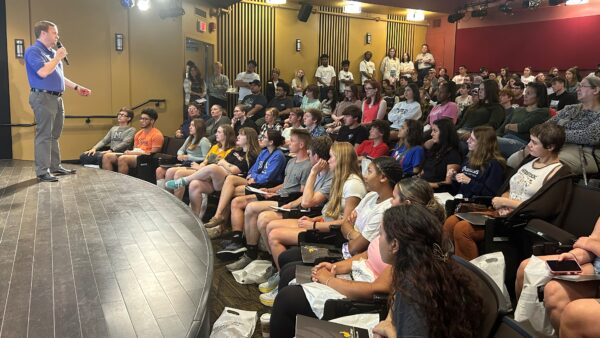Transfer to a Four-Year School
Plan your seamless transition to a four-year college or university. View transfer planning guides and learn about guaranteed and dual admissions programs, special scholarships and more.

Sample Transfer Plans
When you’re not sure what or where your next step will be, follow one of these sample major plans or follow the IAI Core Curriculum to help guide your class selections towards an AA or AS degree.

Transfer Finder
Our advising staff has assembled course transfer guides and agreements between Black Hawk and dozens of four-year colleges and universities. Work with an advisor to help explore your options by major, college or interest category.

Earn Your BHC Degree After Transferring
If you transferred from Black Hawk College before earning your AA or AS, you can still earn your associate degree while pursuing a bachelor’s program through our reverse transfer credit program.
Please confirm transfer requirements with the school of your choice.
Black Hawk College presents this information as a service for our students. Every effort is made to keep documents, details and links up to date. Some schools may have a separate application process and deadline for scholarships. Information presented pertains to domestic students only (visit College Advising Guide for Undocumented Students for more information). Always confirm requirements with a transfer school representative and/or the transfer school’s website.
Advising Events
University of Iowa visit
Quincy University visit
Augustana College visit
St. Ambrose University visit
Upper Iowa University visit
University of Dubuque visit
More To Explore
Order Transcripts
Current Students
Academics
Quad-Cities Campus
Building 1, First Stop Center
309-796-5100
advqc@bhc.edu
Mon-Tue, 8 a.m. to 5:30 p.m.
Wed-Fri, 8 a.m. to 5 p.m.
East Campus
Building A, Room 246
309-854-1709
Mon-Fri, 8 a.m. to 5 p.m.
Evenings by appointment


